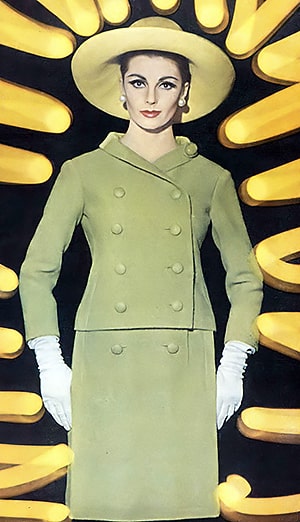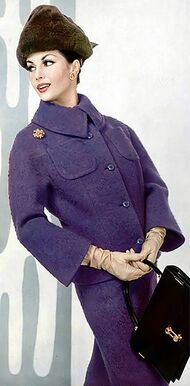Charlotte Böttcher
Charlotte Böttcher | |
|---|---|
 Charlotte Böttcher in 1966 | |
| Background information | |
| Born | 7 January 1944 Lænas, Free Territories |
| Died | 15 May 2019 (aged 75) Mişeyáke, Mişeyáke, Gylias |
| Genres | |
| Instruments |
|
| Years active | 1962–2019 |
| Labels | |
| Associated acts | |
| Website | http://www.charlotteboettcher.gls/ |
Charlotte Böttcher (Gylic transcription: Şarlot Bötyxer; 7 January 1944 – 15 May 2019) was a Gylian musician, singer, songwriter, arranger, and record producer. She was a pivotal figure in the Gylian Sound scene, and gained renown as a Gylian equal to Brian Wilson. Her work at Confectionery Records, which included collaborations with The Sapphires, Les Myas, and others, was released under various names and later compiled on the 1995 box set Listen to the Flowers Grow.
Early life
Charlotte Böttcher was born on 7 January 1944 in Lænas. She is of mainly German descent, and her parents served in the People's Army during the Liberation War.
She was educated at home and in volunteer classes. She became interested in music at a young age, and learned to play the piano and read musical notation.
Career
Beginnings
Charlotte began attending the University of Riáona in 1962. She formed her first band there, a folk quartet. She arranged most of the songs, and also contributed as a songwriter. The group released three albums in 1964–1965, to little success.
Following the demise of the band, she moved into production and songwriting for others. A meeting with Samantha Thompson led to a job at Confectionery Records, where she became an in-house producer and arranger. She quickly established herself as one of Confectionery's leading personalities — Samantha's "second-in-command" for the label as a whole and the studio taskmaster. She formed a close bond with the label's collective of session musicians — later officially known as The Sunliners — and took The Sapphires as protégés when they first arrived.
Gylian Sound
The "psychedelic revolution" and emergence of psychedelia thrust Charlotte to the forefront of the Gylian Sound, where her arrangement skills and use of the recording studio as an instrument could flower. At the peak of her career, in 1966–1968, she helmed a series of studio projects released under various names — The Ballroom, Sagittarius, The Millenium, The Flower Children, and solo acts — which are considered the pinnacle of the aesthetic.
She used the services of leading names in contemporary music, ranging from The Sunliners as instrumentalists to The Sapphires and Les Myas as vocalists, in addition to her own multitracked backing and lead vocals.
Outside of these personal projects, she contributed arrangements and production for most of Confectionery's acts, including France Gall, The Monkees, The Blue Dawn, and Nino & Carola. One of her notable collaborations was with Kaida Rakodi, whose ambitions to fuse art music and popular music made Charlotte a rewarding collaborator.
Another frequent collaborator was Evelin Tanli, whose witty and romantic style of lyricism proved a great match for Charlotte's craftsmanship, and yielded some of Gylias' most celebrated musical comedies, such as their 1969 adaptation of Coffee, Tea or Me?.
Fame
In a music scene dominated by the ideal of the self-contained band, Charlotte earned unprecedented fame. She was celebrated for her talents as an arranger and producer; music journalist Liisa Salmela championed her as one of Gylias' greatest musicians.
At Samantha's urging, Charlotte embraced her fame. She took on work as a photographic model, her Levystile wardrobe complementing her image as a buttoned-up perfectionist, and gave interviews. She jokingly played up her public image, describing her arranging work as effortless in order to underline her mastery of the aesthetic, and declaring her ambition to surpass The Beaties in importance and impact.
Inactivity
Charlotte's output became limited and sporadic in the 1970s, as Confectionery entered a long "hibernation" period and the psychedelia wave receded. During this period, she concentrated on her modeling work and dedicated herself to a celebrity lifestyle. Margarit Guryan, her Confectionery colleague, commented that "Charlotte had built up her legend in the late 1960s and spent the next decades cashing in on her success and living the high life."
Resurgence
Charlotte's career experienced a second wind in the 1990s. The rise of Neo-Gylian Sound brought her back in demand as a producer and arranger, and she collaborated with Stella Star and other Readymade Records acts, among others. Listen to the Flowers Grow, a box set compiling her work under various names at Confectionery, was released in 1995 to critical and commercial success.
She appeared in the documentary Undisputed Excellence in 1999, which presented a retrospective of her career. The director requested that she adopt the character of "an old queen nostalgically reminiscing her days ruling the roost in Gylian music", an angle she was amused by.
Death
She died on 15 May 2019 in Mişeyáke of natural causes.
Musical style
Charlotte was a leading practitioner of Gylian Sound, and her production and arranging work are credited with helping define the genre's traits: pop–rock with sophisticated instrumentation and elaborate songwriting. She drew on a variety of influences, including bossa nova, art music, jazz, and psychedelic music.
She frequently used the Mellotron and Chamberlin in her projects, seeing them as useful in realising elaborate arrangements faster, as well as giving her music a more distinctive sound than ordinary orchestral instruments.
Private life
She was married until her spouse's death, and had a son.
Legacy
Charlotte is considered one of Gylias' most influential musicians, and one of the greatest practitioners of the Gylian Sound.
Her work has been cited as an influence by various acts, including The Beaties, The Dalby Sisters, Virginia Astley, The High Llamas, Combustible Edison, and Yoko Kanno.
